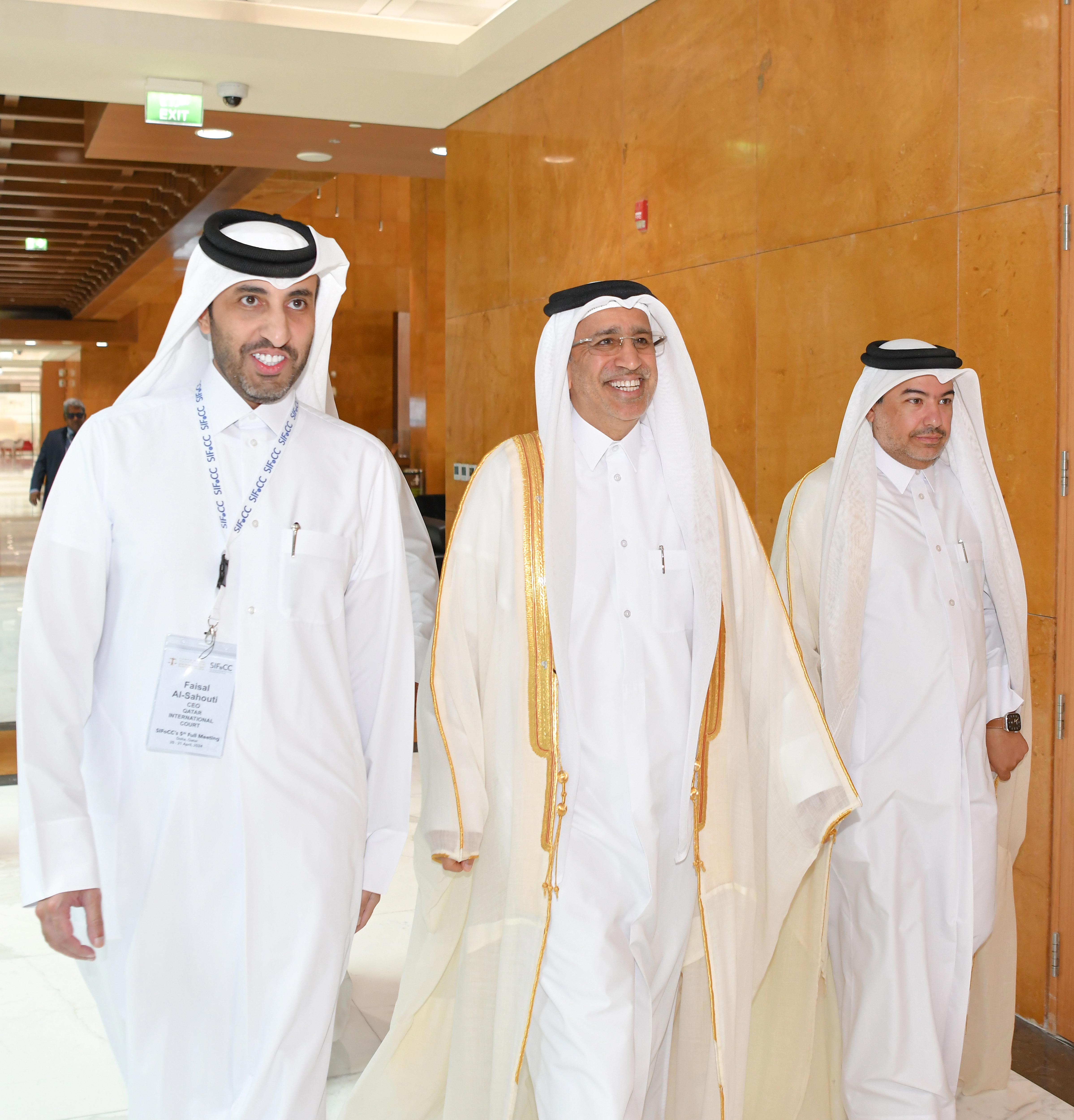
The Qatar International Court and Dispute Resolution Centre (QICDRC) proudly inaugurated the 5th Full Meeting of the Standing International Forum of Commercial Courts (SIFoCC) in Doha, Qatar, marking the commencement of a two-day event dedicated to advancing commercial dispute resolution practices globally. Held at Qatar University, the first day of the conference witnessed a convergence of legal minds from over 50 jurisdictions, setting the stage for constructive dialogue and collaboration.
The day commenced with a warm welcome extended by Faisal Rashid Al-Sahouti, CEO of QICDRC, who expressed his gratitude to all delegates for their participation and emphasized the significance of the forum in promoting international cooperation and collaboration among commercial courts worldwide. He stated: “As a country that is striving further to develop its legal services sector, Qatar and its justice system and its profession are proud to have this meeting of SIFoCC take place here in Doha, the first city in the MENA region to host. It is a boon for Qatar’s justice system and legal profession to host, and it is in line with the values of the 2030 National Vision to aid social, human, economic, and environmental development.”
Lord Thomas, former Lord Chief Justice of England and Wales and the visionary behind SIFoCC, delivered a keynote address highlighting the forum's mission to foster collaboration and share best practices. Commenting on the Meeting, he stated: “The growth of this meeting has been truly remarkable. Year by year, we have witnessed an expansion in participation from a diverse array of jurisdictions, both geographically and in terms of legal systems represented. As it expands further, it will undoubtedly serve as an even more valuable resource to strengthen the relationships between business and the law across the world.”
Commenting on the 5th Full Meeting of the Standing International Forum of Commercial Courts (SIFoCC), Dame Sue Carr, Lady Chief Justice of England and Wales, stated: “I have enjoyed the first sessions this morning immensely. Although the number of judiciary attending from across 57 jurisdictions, in person and online, runs to well over 150, there has been the most effective dialogue. Collectively, we have an impressive breadth of commercial knowledge and experience to share. Our discussions have highlighted the common experience shared amongst delegates, despite jurisdictional differences. I am looking forward very much to the remainder of the conference, and am extremely grateful for the hospitality shown by our generous hosts.”
The inaugural sessions of the forum delved into a range of pertinent topics, including developing the relationship between commercial courts, arbitration and mediation, transnational judicial cooperation, AI in disputes and climate change.
Throughout the day, delegates engaged in dynamic exchanges, facilitating knowledge-sharing innovative, approaches and strategies aimed at enhancing commercial dispute resolution processes. Networking sessions provided opportunities for participants to forge new connections, deepen existing partnerships, and lay the groundwork for future collaborations in the pursuit of excellence in the legal profession.
As the opening day of the 5th Full Meeting of SIFoCC came to an end, QICDRC wished to express its gratitude to all delegates for their active engagement and valuable contributions. Looking ahead to day two, a keynote address titled “The Spirit of the Judicial Task and the Importance of International Judicial Dialogue,” will be delivered by Hon. James Allsop AC, former Chief Justice of the Federal Court of Australia. Following this address, participants will have the opportunity to partake in enriching discussions during a networking session to facilitate invaluable connections and foster the exchange of ideas.



